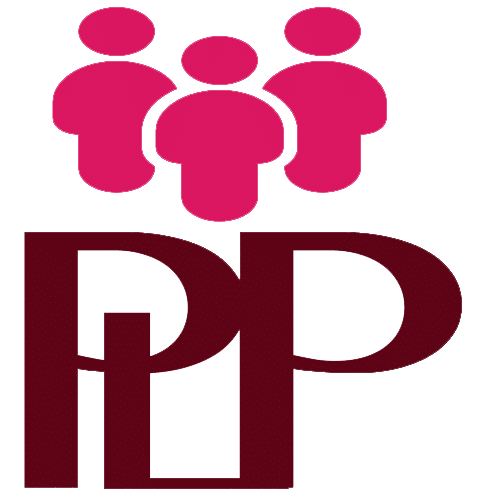The workplace is evolving again. Just when businesses and employees had adapted to remote work, many are now being asked to return to the office, and this shift is stirring a complex array of challenges. Employees who have grown accustomed to flexible working arrangements are finding it difficult to reintegrate into full-time physical work spaces. As recruitment agencies and companies navigate this transition, it’s vital to address how businesses can maintain engagement, productivity, and satisfaction for their remote workforce.
The Rise of Flexible Work Preferences
Remote work, once a temporary solution, has now become a preferred mode for many workers. “We’ve seen a seismic shift in workplace expectations,” explains Andy Parke, founder of Parke Lane People. “Our clients in HR, finance, marketing, and admin are all noticing how employees are valuing the flexibility that remote work offers. However, the challenge now is how to balance this with the business need for in-office collaboration and structure.”
While some organisations are pushing for a complete return to the office, others are adopting hybrid models. However, this hybrid approach can create new hurdles. A split between in-office and remote workers may lead to feelings of disconnect, unequal opportunities for advancement, or even workplace silos. It’s clear that remote work is here to stay, but businesses need strategies to support it without undermining team cohesion.
Maintaining Engagement in a Hybrid World
Keeping employees engaged, motivated, and productive in a remote setup requires more than just video meetings and chat platforms. It calls for deliberate action. “One key insight we share with our clients is the importance of maintaining transparency and clear communication channels,” says Andy Parke. “Remote employees often feel out of the loop, so regular check-ins, feedback sessions, and open communication are critical to making sure everyone feels included, regardless of where they are working.”
Employees who feel engaged are more likely to remain loyal, which is crucial in sectors like HR, finance, marketing, and admin. For instance, businesses in HR recruitment can especially benefit from flexible models that meet employee needs while attracting top talent to open positions.
★★★★★
‘I have worked with Andy at Parke Lane People during the past 6 months to support with our recruitment needs. I have found the service received from Andy always very professional. Andy and his team always spend time getting to know the School and then the individual roles to make sure the service is tailored to what we need. I have found that the candidates submitted for the role fulfil the remit required.’
Head of HR
Private School in Oxford

The Role of Technology in Hybrid Work
Technology has become the backbone of the remote work revolution, but its role doesn’t stop at enabling Zoom meetings. Companies are leveraging cutting-edge tools for project management, collaboration, and performance tracking. “Investing in the right tech stack can make or break your hybrid work environment,” Andy Parke highlights. “The tools used need to be intuitive and foster real-time collaboration, ensuring that remote employees don’t feel like second-class people.”
This approach is particularly vital in fast-paced industries like finance recruitment, where a lot depends on quick, seamless communication and data sharing between team members.
The Long-Term Career Implications
Another significant concern for remote workers is the potential impact on career progression. Many fear that being out of sight means being out of mind when it comes to promotions, projects, or other career-building opportunities. As Andy Parke notes, “Employers need to be intentional about offering equal opportunities for all workers. Whether in the office or remote, employees should have clear paths for development, access to training, and recognition for their contributions.”
This is particularly relevant in sectors like marketing recruitment, where creativity and innovation are key, but so is visibility. To ensure remote workers aren’t left behind, companies need to reevaluate how they measure success and assign leadership roles. Parke Lane People has a strong focus on finding the right talent in marketing, and more information is available here.
★★★★★
‘We started working with Parke Lane People over a year ago to help with our rapidly growing team. Andy and his team are a breath of fresh air in the recruitment world. I believe them when they say they’re motivated to connect us with the best candidates. Their diligence and attention to detail during the screening phase mean we only speak to candidates who are “the right stuff”, and this has significantly improved what is usually a very stressful process.
I’ve had poor experiences with other recruiting agencies in the past. I find many to be disingenuous and overly transactional, seeing candidate sourcing as a numbers game first and foremost. That’s not the case with Parke Lane People.
Thanks to their dedication to excellence and partnership, they have entirely changed my mind about outsourcing recruitment needs. If you feel the same way about recruitment firms as I do, consider working with Parke Lane People. Your business will be better off for it.’
Head of Sales & Marketing
Digital Marketing Agency – Bicester
Balancing Flexibility with Company Goals
It’s clear that the future of work is hybrid, but the road ahead isn’t without its bumps. For businesses, the challenge lies in finding a way to blend remote and in-office work that aligns with company goals while fostering a culture of flexibility. For employees, it’s about adapting to new dynamics and ensuring they stay engaged and productive.
Andy Parke sums it up perfectly: “The workplace is undergoing a fundamental change, and businesses need to meet the moment. This isn’t about forcing everyone back to their desks; it’s about understanding what drives your team and how you can support them—no matter where they are.”
For businesses in admin recruitment, creating a hybrid model that supports flexibility while ensuring administrative operations run smoothly is essential.
Conclusion
The transition back to the office is undoubtedly a challenge, but with the right strategies, businesses can thrive in this new hybrid work environment. Balancing remote flexibility with in-office collaboration, investing in technology, and ensuring all employees have equal opportunities will be key. By doing so, companies can maintain a competitive edge while keeping their teams motivated and engaged, wherever they may be working.
Thanks, The Parke Lane People Team
